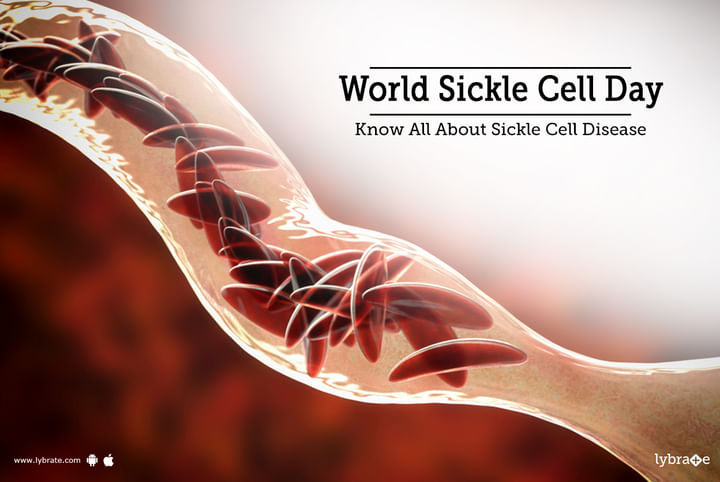World Sickle Cell Day: Know All About Sickle Cell Disease
World Sickle Cell Day is observed annually on the 19th of June to raise awareness of sickle cell-related diseases. It is observed to increase people's knowledge and the understanding required to face the challenges posed by the disease.
What is Sickle Cell disorder (SCD)?
Sickle Cell disorders or Sickle Cell diseases are genetic blood disorders that cause an abnormality in the red blood cells. The RBCs turn into sickle-shaped cells that stick together and block the blood flow in the body.
Types
There are four major classifications of Sickle cell diseases-
-
Hemoglobin SS Disease
-
Hemoglobin SC Disease
-
Hemoglobin SB+ thalassemia
-
Hemoglobin SB 0 thalassemia
Symptoms
One can start noticing symptoms of Sickle cell in a patient at around 6 years of age. However, they can differ from person to person. Some of the most typical symptoms are-
-
Anemia
A shortage of red blood cells occurs due to the excessive early dying in 10-20 days. It leads to an oxygen shortage in the body.
-
Excessive pain
Blockage of blood flow due to the change in shape leads to periodic cycles of pain in the body.
-
Swelling in the body
As the blood circulation becomes irregular, swelling becomes a regular phenomenon.
-
Infections
Sickle cell can be damaging to the spleen. It increases the risk of ailments in the body that can be prevented only by antibiotics.
-
Delayed puberty
Oxygen and nutrients carried by the blood are required for growth. As a reason, irregular blood flow can lead to slow growth or delay in puberty.
-
Vision issues
Infected blood vessels carrying blood to the eyes can cause damage to the retina. It can lead to visual problems.
Traits and Treatment
As Sickle cell is genetic, it is suggested to take a test that can detect any trait of the disease. It can prevent any life-threatening risks to the newborn. However, we don't have a complete cure for Sickle cell disorders. There are preventive measures that reduce the adversity of the disease to an extent. Procedures like blood transfusions help greatly in minimizing the effects of the disorder.



+1.svg)
